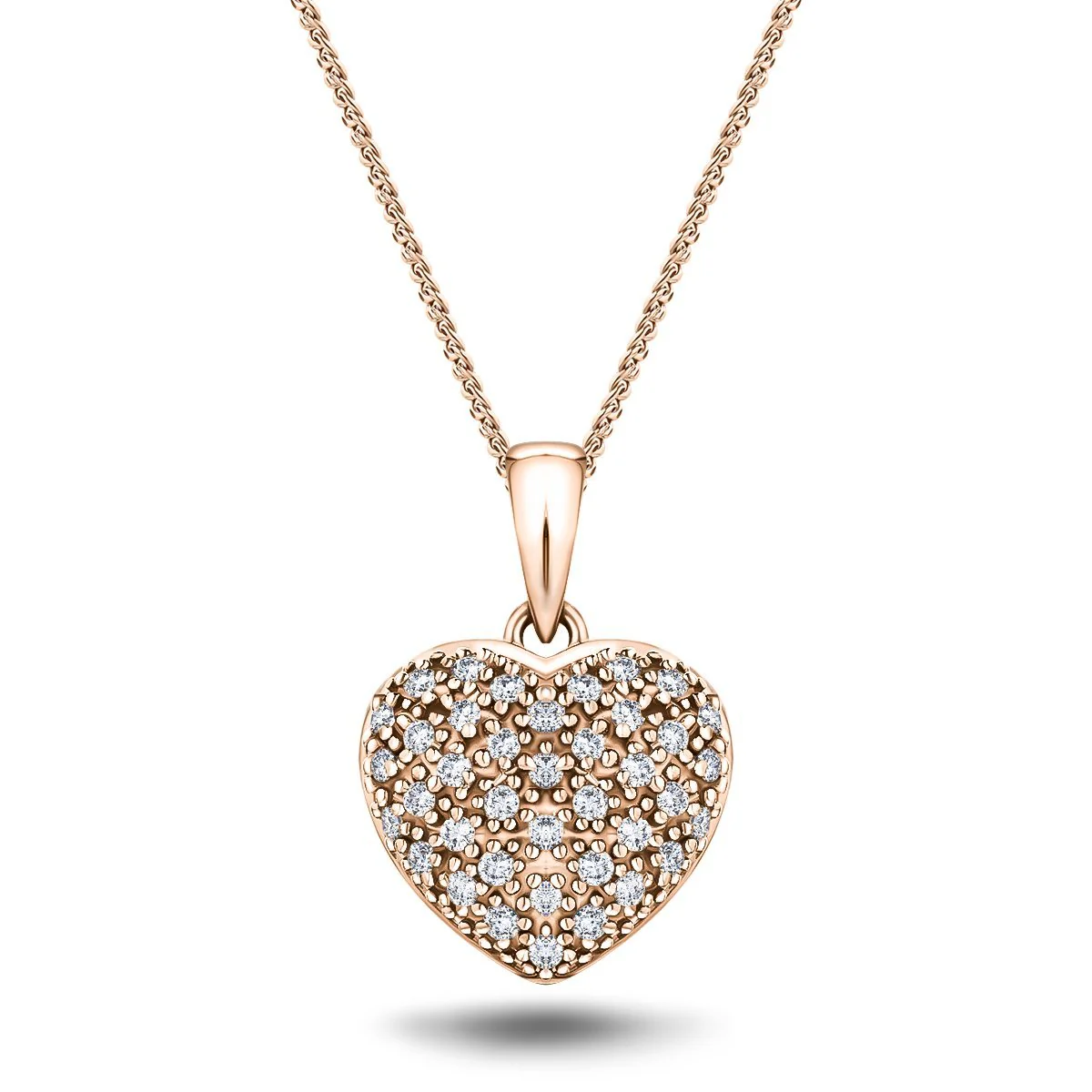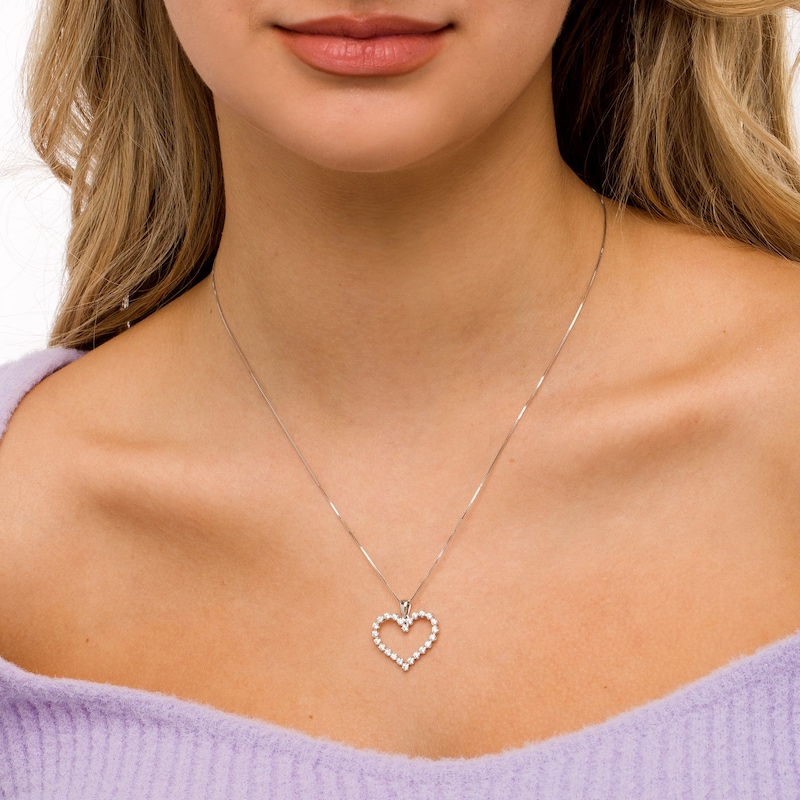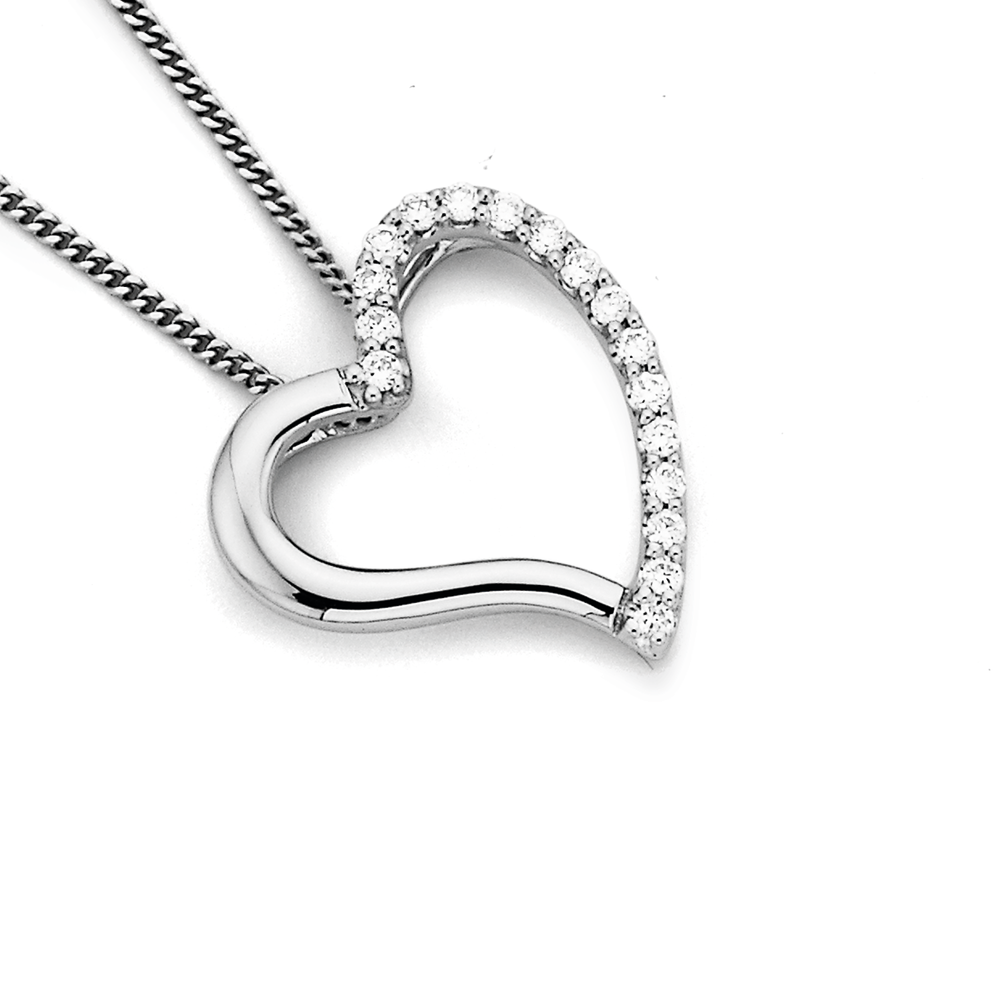History of the Heart Pendant
The diamond heart pendant boasts a history rich in symbolism and style. Its origins trace back to ancient times. Both the Greeks and Romans saw the heart shape as a symbol of love. During the Middle Ages, the heart symbolized sincerity and courage. By the Renaissance, it was a common motif in art and jewelry.
In the Victorian era, heart pendants grew in popularity. They often contained hidden compartments for pictures or locks of hair. These sentimental pieces were tokens of love and remembrance. After the Industrial Revolution, jewelry production increased. More people could afford the luxury of heart-shaped jewelry, including diamond heart pendants.
In modern times, the diamond heart pendant has become a staple in fine jewelry collections. It signifies love, passion, and devotion. Gift-givers choose these pendants for Valentine’s Day, anniversaries, and birthdays. Their timeless elegance appeals to a wide audience.
The journey of the heart pendant’s style and significance throughout history makes it a symbol that transcends time. Today, adding diamonds to the classic heart shape combines tradition with the desire for luxury and sparkle.
The Symbolism of Heart Pendants
The symbolism of heart pendants goes beyond simple aesthetics. At their core, they represent love and connection. When adorned with diamonds, their meaning deepens. Diamonds are known for their strength and resilience. They signify an unbreakable bond, much like enduring love. This symbolism makes diamond heart pendants the perfect gift for someone special.
A diamond heart pendant often symbolizes strong emotions. It can represent romantic love, family bonds, or deep friendship. Gifting this piece speaks volumes without words. It’s a message of deep affection and lifelong commitment. For many, it’s more than jewelry. It’s a keepsake that holds cherished memories and feelings.
In many cultures, the heart symbolizes the soul’s purity. Combined with a diamond’s clarity, a diamond heart pendant becomes a token of pure love. It’s an emblem of honesty and transparency in relationships. People cherish it as a reminder to live with open hearts and clear intentions.
Throughout history, the heart has also been a sign of courage and bravery. Wearing a diamond heart pendant can inspire strength. It’s a small but mighty symbol that encourages its wearer to face life’s challenges with grace.
When you choose a diamond heart pendant, you’re selecting a piece that carries rich meaning. It’s both an elegant accessory and a symbol of life’s most important bonds. It captures the essence of love and fortitude in one beautiful piece of jewelry.
Types of Diamond Heart Pendants
Choosing the right type of diamond heart pendant can be a personal journey. With various styles and designs, there’s one for every taste and occasion. Here, we explore the common types available on the market.
Classic Solitaire Diamond Heart Pendants
This type features a single diamond set in the center of a heart-shaped outline. Its simplicity is timeless and versatile, perfect for daily wear or special events.
Pave Diamond Heart Pendants
Pave pendants are encrusted with small diamonds. They sparkle with every movement. These are ideal for those who love a glittering effect.
Halo Diamond Heart Pendants
Halo designs have a central diamond surrounded by smaller stones. This setting amplifies the pendant’s brilliance and is great for making a statement.
Open Heart Diamond Pendants
An open heart design has a heart contour lined with diamonds. It’s a contemporary take on the classic heart symbol and offers a fresh, modern look.
Three-Stone Diamond Heart Pendants
These pendants feature three diamonds that symbolize the past, present, and future. They’re a meaningful choice for an anniversary gift.
Colored Diamond Heart Pendants
Colored diamonds like pink or yellow can add a unique twist to the heart pendant, making it stand out from traditional white diamonds.
Engraved Diamond Heart Pendants
Some heart pendants offer space for engraving, adding a personalized touch to the piece, such as initials or a special date.
When selecting a diamond heart pendant, consider the wearer’s personal style and the occasion. Each type holds its own charm and expression of love, making the diamond heart pendant a versatile and cherished piece of jewelry.
The Four Cs of Diamonds in Pendants
When shopping for a diamond heart pendant, the quality of the diamond is crucial. Jewelers use the Four Cs to evaluate quality. These are Cut, Color, Clarity, and Carat Weight. Understanding these will help you make an informed choice.
Cut
The cut of a diamond influences its brilliance and sparkle. A well-cut diamond will reflect more light, looking brighter and more vivid. For pendants, a good cut is essential as it ensures the diamond catches the eye.
Color
Color grading ranges from colorless to light yellow. The less color in a diamond, the higher its grade and value. For pendants, many opt for colorless or near colorless to enhance sparkle.
Clarity
Clarity refers to the presence of imperfections in the diamond. The fewer the blemishes and inclusions, the clearer and more expensive the diamond. Pendants with high clarity diamonds have a pristine look.
Carat Weight
Carat weight measures a diamond’s size. Larger diamonds are rarer and cost more. However, for a heart pendant, consider the piece’s overall balance, not just carat size.
Knowing the Four Cs will guide you in finding a stunning diamond heart pendant that’s also a worthy investment. Look for a balance that suits your taste and budget.
Selecting the Right Metal for Your Pendant
Choosing the right metal for your diamond heart pendant is key. The metal affects the overall look and durability of the piece. When picking a metal, consider the wearer’s style and any skin sensitivities. Here are some popular options:
Gold
Gold is a classic choice that comes in various colors, such as yellow, white, and rose. It’s durable and offers a traditional appeal. Look for 14k or 18k to balance purity with strength.
Platinum
Platinum is a premium, dense metal known for its longevity and hypoallergenic properties. It has a naturally white sheen that won’t fade over time. It’s perfect for a luxurious, high-end pendant.
Silver
Silver is more affordable and has a softer shine compared to platinum or white gold. It’s a light metal but more prone to scratches and tarnishing. Great for those on a budget.
Titanium
Titanium is strong, lightweight, and resistant to corrosion. It’s a modern choice and suits a contemporary design. It’s also hypoallergenic, which is a plus for sensitive skin.
Choosing a metal is not just about color. It’s about matching lifestyle and personal taste with the pendant’s expected longevity. Consider the diamond’s sparkle against the metal’s hue. Also, think about maintenance and how often the person will wear the pendant. These factors will help you pick the perfect metal for your diamond heart pendant.
Pendant Design and Settings
When choosing a diamond heart pendant, the design and setting play a pivotal role. This aspect determines the pendant’s overall style and security of the diamonds.
Prong Settings
Prong settings feature metal claws that hold the diamond in place. They allow more light to enter the diamond, enhancing sparkle. Prong settings can vary from three to six prongs; more prongs offer increased security.
Bezel Settings
Bezel settings encase the diamond with a metal rim. This offers excellent protection for the diamond and suits an active lifestyle. It provides a sleek, modern look.
Channel Settings
Channel settings have diamonds set between two metal strips. This secures the diamonds without prongs and creates a smooth surface. It’s great for a clean, streamlined appearance.
Pavé Settings
Pavé settings secure small diamonds close together using tiny beads or prongs. This setting creates an uninterrupted field of sparkle, perfect for those who prefer glimmer.
Invisible Settings
Invisible settings mount the stones next to each other with no visible metal, creating the illusion of a floating diamond surface. This sophisticated setting is unique and eye-catching.
When selecting your diamond heart pendant, consider the level of activity you engage in daily. Settings like bezel or channel provide more protection. For those seeking maximum sparkle, prong and pavé settings are ideal choices. Also, keep in mind the maintenance the settings might require; some need more frequent check-ups to ensure the diamonds remain secure.
Tips for Matching Pendants with Outfits
When styling a diamond heart pendant, consider the outfit. The right pairing enhances both. Follow these simple tips:
Consider the Neckline
A pendant pairs well with a V-neck or scoop neck that opens the chest area. For high necklines, a longer chain shows off the pendant. Avoid busy patterns near the neck.
Match with the Occasion
Select simple designs for daily wear. For formal events, choose bold or intricate pendants. Ensure the pendant suits the occasion’s tone.
Coordinate with Other Jewelry
Team the pendant with similar metals and styles. This creates a cohesive look. Avoid over-accessorizing to let the heart shape stand out.
Choose the Right Chain Length
The chain length affects the pendant’s impact. Short chains work with most necklines. Longer chains suit taller wearers or layered looks.
Balance with Clothing Colors
Pair the pendant with neutral colors for a classic look. Use colors that complement the diamond’s sparkle. Avoid overpowering the pendant with bold patterns.
By following these tips, your diamond heart pendant will shine in any setting. It’s a versatile piece that, with the right outfit, can elevate your look effortlessly.
Caring for Your Diamond Heart Pendant
Caring for your diamond heart pendant ensures its lasting beauty. Here’s how to do it right.
Regular Cleaning
Gently clean your pendant with a mild soap and warm water. Use a soft brush to reach small crevices. Rinse it well and pat dry with a soft cloth.
Professional Inspections
Have your pendant checked by a jeweler yearly. They will check for loose diamonds or worn settings. This prevents the loss of diamonds.
Safe Storage
When not wearing it, store your pendant separately. A fabric-lined jewelry box prevents scratches. Keep it away from other pieces that can harm it.
Avoid Chemicals
Remove your pendant before using harsh chemicals. Items like perfumes and hair sprays can damage the metal and dull the diamonds.
Handle with Care
Treat your pendant gently. Avoid pulling on the chain or hitting it against hard surfaces. This prevents damage to the setting and the diamonds.
By following these simple steps, you keep your diamond heart pendant shining. It will remain a stunning symbol of love for years to come.
Tags: diamond heart pendant, sincerity and courage, timeless elegance


